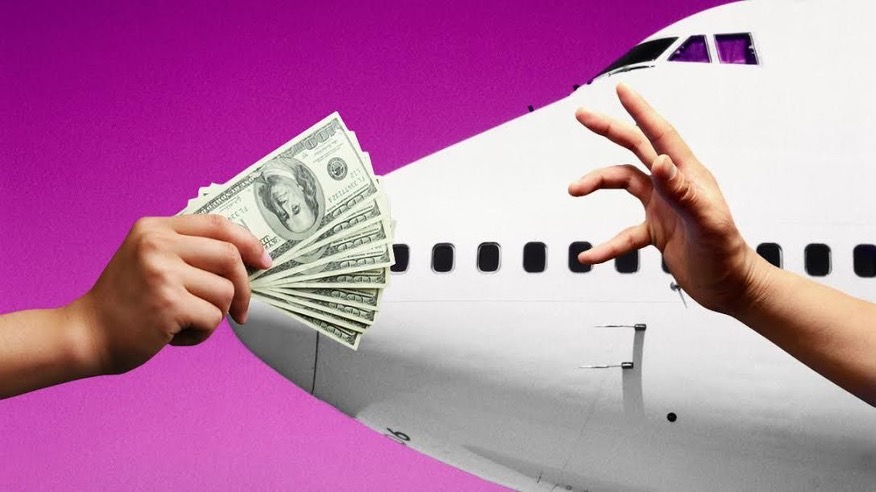If you’re hoping to get bumped off your next flight in exchange for compensation, here are seven tips to increase your chances and maximize the experience.

Airlines frequently oversell flights, which can lead to overbooking situations; that is, there are more passengers booked on a flight than there are seats.
When most people think of airline overbooking, their goal is to avoid getting bumped. For some, however, getting bumped is a bit of an adventure, plus lucrative.
In overbooking situations, airlines are supposed to solicit volunteers to take another flight before involuntarily denying boarding to a passenger who wants to take the flight. This can be a win-win, as everyone who wants to fly does while a traveler with a flexible schedule picks up some cash or credits toward future travel in exchange for his/her time.
Willing to trade delay for cash or travel credits? Here are seven tips for increasing your chances of getting bumped on your next flight and maximizing the experience.
1. Understand there’s no guaranteed bump.
Airlines use complex algorithms to decide by how much flights should be oversold. Historical data is used to determine no-show rates, and flights are sold accordingly. No-show rates differ, depending on a flight’s time of day/day of the week/month of the year, weather, route, etc.
Most of the time airlines get it right and don’t need volunteers. Sometimes, though, they don’t (algorithms can only do so much to predict future human behavior); that’s when volunteers are needed.
What’s my point? Don’t think booking a trip around Thanksgiving will necessarily give you better odds of a bump than booking a flight during a typical business day. Airlines are much less likely to significantly oversell a flight on the day before Thanksgiving than on a Friday afternoon on a business route. Remember: bumps could happen when you least expect them.
2. Do your research ahead of time.
Before you go to the airport, find out if the airline is still selling seats on your flight. If they are, chances are the flight won’t be oversold. If the flight is sold out or close to being sold out, the odds of volunteers being needed are better.
How full a flight is can change from one minute to the next. A flight showing sold out at noon can have a dozen empty seats by 12:30 because a flight carrying twelve connecting passengers was delayed. Similarly, a flight that shows as being wide open can be full ten minutes later because an earlier flight to the same destination was canceled.
3. Show up at the gate early to express interest.
Different airlines have different policies as to when they start soliciting volunteers. Some ask for volunteers during online check-in, though this is generally non-binding; that is, you are not guaranteed a bump. (They are just adding your name to a list indicating you’re willing to talk to the gate agent if a bump becomes necessary.)
The actual bump process is generally taken care of at the gate; if you are interested, it is best to show up at the gate early (ideally up to 30 minutes before the flight’s scheduled boarding time).
When the gate agent isn’t too busy, approach and tell him/her, “Is there any chance you’re oversold and need volunteers today? I have some flexibility in my schedule.” Ideally, they’ll say “yes,” and will hold onto your boarding pass. They may also discuss what compensation is being offered and the alternative flights available.
4. Have an alternative ready.
If your flight is oversold, chances are pretty good other flights are oversold as well, meaning it may not be easy to find another flight with availability. Gate agents are busy, and may not always pick the best alternative routing.
This is why it pays to do your own research. Use either the airline website, Google Flights, or ExpertFlyer, to browse what other options may be available. Don’t be afraid to get creative in terms of the routing, especially if it will get you to your destination quickest. You can then save the gate agent some time by suggesting the alternative to him/her.
5. Figure out how much you can negotiate.
Airlines want to do everything they can to avoid involuntarily denying people boarding, as that’s counted against them by regulators. This means gate agents usually have some discretion when it comes to setting voluntary-denied boarding compensation.
To figure out how much leverage you have to negotiate, try to get a sense of how oversold the flight is. If they don’t ask for any other volunteers in the gate area, chances are the flight is oversold by only one or two passengers, which means you don’t have that much leverage. However, if the gate agents announce they are asking for more than a few volunteers, or if the alternative routing they’re offering means a big delay in your travels, you have a lot more room to bargain. Sometimes you can even negotiate an upgrade as part of the compensation, especially if first class is all that’s available.
Some airlines have a policy of giving all volunteers the highest compensation given to any one individual. Even if that’s not officially the case, if you have some leverage, you should be able to negotiate that without issue.
6. Make the gate agent’s job easy.
Once you’ve volunteered, don’t be annoying. Gate agents are ridiculously overworked; once they ask you to hang around, just say “I’ll be sitting over here.” Make sure your seat is close to the podium so you can observe what’s going on and so they can easily call you over if there are any updates.
If they do bump you and they’re still busy, make sure you get the compensation from them, but then consider going to an airline lounge or customer service desk to get boarding passes, seat assignments, etc., for your new flight.
7. Understand it’s not over until the door closes.
You can go through the process of volunteering, agreeing on compensation, and having the agent protect you on the next flight—and still not get bumped.
A risk to be aware of: things can change last minute. You may find yourself in a situation where 30 seconds before departure the gate agent asks you to board the plane. There may be no more room for carry-ons, or your seat may have been assigned to someone else. This doesn’t happen often, but it can.
Twist’s Take: Hoping to get bumped off your next flight in exchange for compensation? Keep these seven tips in mind to increase your chances and maximize the experience.

